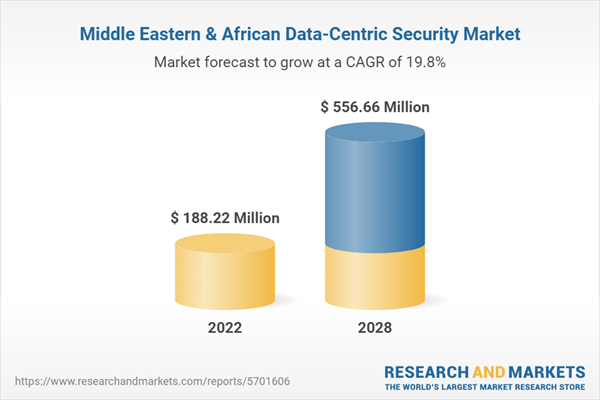Artificial intelligence (AI) is well suited to quickly analyze large amounts of data and apply heuristic algorithms to identify patterns. Black hat hackers are now using AI approaches to analyze network traffic and stolen data such as passwords to identify vulnerabilities that can be exploited immediately. Similarly, cybersecurity teams are using AI to analyze data collected from defenses and network traffic, looking for early warning of cyberattacks and new attack patterns. Hence, AI will play a crucial role in developing the data-centric security solution. Furthermore, in recent years, enterprise workloads have been dispersed across several cloud environments and evolved quickly, which is considered a multi-cloud security strategy. Nearly 92% of cloud solution adopters either have a multi-cloud strategy or are in the process of adopting an affordable multi-cloud and hybrid cloud strategy in the next few days, according to a new study by Flexera. Hence, the organization will focus on data security instead of application or server. In addition to increasing flexibility and layering automation and intelligence into security across platforms, multi-cloud security solutions with increase with the point solutions that tie security to a single site. Therefore, businesses will be better able to defend themselves against contemporary dangers when using multi-cloud security solutions.
Furthermore, the COVID-19 pandemic impacted businesses' operations, and multi-cloud helped businesses adapt to the new normal. Due to the recent turmoil, more than half (61%) of Flexera respondents say their focus is on providing more flexible ways of working. Most companies conclude that their remote workers may expand in the future. Thus, multi-cloud is the most flexible IT environment that enables this flexibility by distributing data across many geographic locations for user proximity and business continuity.
Market Overview
The data-centric security market in MEA includes South Africa, Saudi Arabia, the UAE, and the Rest of the MEA. The energy industry of the region had seen an increase in data-centric attacks. Rapid digitalization in countries like the United Arab Emirates and Saudi Arabia has enabled the number of connected devices by opening new gateways for data-centric attacks. Due to the recent low price of crude oil, the regional governments are increasing their investments in information and communication technologies. Owing to this, most of the region's social infrastructure, government services, financial sector, schools, and hospitals are increasingly implementing interconnected solutions with minimal attention to the security needs of these developments. The main factors driving the threat of data-centric attacks in the Middle East & African region are the growing vulnerabilities in digital communication networks and supply chains, growth in the user base of online consumers, and, most importantly, the region's deficient cybersecurity infrastructure. Banks in the region are answering to the consumers' preferences of the digital era by increasing their investments in digital modernizations while also focusing on improving the security of mobile banking and the user experience. For instance, Emirates NBD (ENBD), the leading bank in the region, invested AED 1 billion in digital transformation. In addition, the banks, such as Mashreq and Commercial Bank of Dubai (CBD), were early adopters of digital transformation.Middle East & Africa Data-Centric Security Market Segmentation
The Middle East & Africa data-centric security market is segmented into component, deployment mode, organization size, verticals, and country.- Based on component, the market is bifurcated into solution and service. The service segment is expected to register the larger market share in 2022.
- Based on deployment mode, the Middle East & Africa data-centric-security market is segmented into cloud-based and on-premises. The cloud-based segment is projected to hold a larger market share in 2022. On the basis of organization size, the data-centric security market is segmented into small and medium enterprises and large enterprises. In 2022, the large enterprises is expected to hold the largest market share.
- Based on country, the market is segmented into Saudi Arabia, South Africa, UAE, and the Rest of Middle East & Africa. Saudi Arabia dominated the market share in 2022. Broadcom Corporation, Forcepoint, IBM Corporation, Informatica Corporation, Micro Focus, NetApp, Orange Cyberdefense, Talend, and Varonis are the leading companies operating in the data-centric security market in the region.
Table of Contents
Companies Mentioned
- Broadcom Corporation
- Forcepoint
- Ibm Corporation
- Informatica Corporation
- Micro Focus
- Netapp
- Orange Cyberdefense
- Talend
- Varonis
Table Information
| Report Attribute | Details |
|---|---|
| No. of Pages | 128 |
| Published | November 2022 |
| Forecast Period | 2022 - 2028 |
| Estimated Market Value ( $ | $ 188.22 Million |
| Forecasted Market Value ( $ | $ 556.66 Million |
| Compound Annual Growth Rate | 19.8% |
| Regions Covered | Africa, Middle East |
| No. of Companies Mentioned | 9 |









